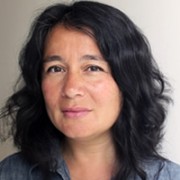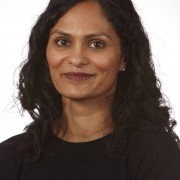Interesting Times: the results of our online “religious, spiritual and ethical broadcasting” poll are in
“May you live in interesting times!” are the words ancient Chinese sages apparently used to curse their enemies. Somewhat inauspicious then, perhaps, that they’re also the words that sprung most readily to mind when I reviewed the results of the Sandford St Martin Trust’s first public survey on the state of religious, ethical and spiritual broadcasting today. “Interesting times”, after all, are rarely peaceful or settled times. Rather, they are periods prone to insecurity, instability, confusion and change – which pretty much sums up the dilemmas facing contemporary broadcasting – not least, those facing what’s identified as “religious” broadcasting.
Recent years have seen religious coverage and programming evolve radically both in form and content. Propelled in part by a rash of geo-political conflict where religion and religious issues are being used around the world as rallying calls for violence, the average citizen is probably exposed to more news broadcasting and media about religion and religious identity now than ever before. Consider this alongside the revolution in broadcasting technology which means that “traditional” media now competes for audiences with rapidly growing satellite, cable, online, user-generated, user-propagated, non-regulated, 24/7, niche broadcasting services – among others – and it becomes clear that the familiar and comforting broadcasting “auntie” of old has got some very young and noisy upstart nephews and nieces.
“Interesting” times, indeed.
Will the current climate form the basis for a renaissance in religious broadcasting? If the response to our recent “Religious Docs: Who Needs Them?” session at Sheffield Doc/Fest is any indication, then there are some programme-makers, producers and commissioners who think so. Others are more cynical and believe that their practice is being steadily undermined by both an increasingly competitive broadcasting ecology and a culture that denigrates the spiritual. Listen to the vox pop recorded by the student-journalist Lucy Wilson at Sheffield and you’ll get a sense of the mix of opinion out there.
Which brings us back to our survey. Response percentages have been published here in our Briefings section, and, while the survey sample was small and can only begin to tell part of a story, I think what appeared under the “any other comments” section was particularly telling. These comments, I believe, raise some very pertinent issues – issues that should be at the heart of any discussion about whether or not the UK needs more or less religious broadcasting. Many respondents wanted to talk about the mixed quality of religious broadcasting as well as about quantity. Some lamented what they identify as a general decline in religious “literacy”. And there was a call for religious programme-makers to “drag religion up to date using new media”. “Grey hair can mean grey opinion”, one respondent wrote.
Another comment in response to the question “Should religious, ethical and spiritual programming be ring-fenced within public sector broadcasting?” echoed a chord. It went: “My answer… depends on how you define a religious programme as compared with a programme that has religion in it. For example, is it more powerful to have a Christian boy band win Britain’s Got Talent (watched by millions) than to have a programme about the Bible/Torah/Koran? Or have Corrie deal with religious discrimination rather than a programme about religious discrimination?”
Good question.
When Ralph Lee, Channel 4’s Chief Creative Officer, was asked to name a good example of religious broadcasting at the Trust’s Edinburgh TV Festival debate last year, he chose Gogglebox. Gogglebox regularly features the bubbly and loquacious Rev Kate Bottley on one of its sofas and Ralph’s point was that programmes like this give a new, different, colloquial or even mundane perspective on the Church and/or someone living a life of faith that is often missing from loftier-themed religious programming. Polly Toynbee, who was speaking at the same event, claimed calling something like Gogglebox “religious” was cheating.
What do you think? How broad a church (if you’ll forgive the obvious metaphor) should what we call religious or spiritual or ethical broadcasting be? In these “interesting” times, which for broadcasters and programme-makers are full of instability, insecurity, confusion and change, we’d like to hear your opinion. Drop us a line by commenting here or e-mailing admin@sandfordawards.org.uk




